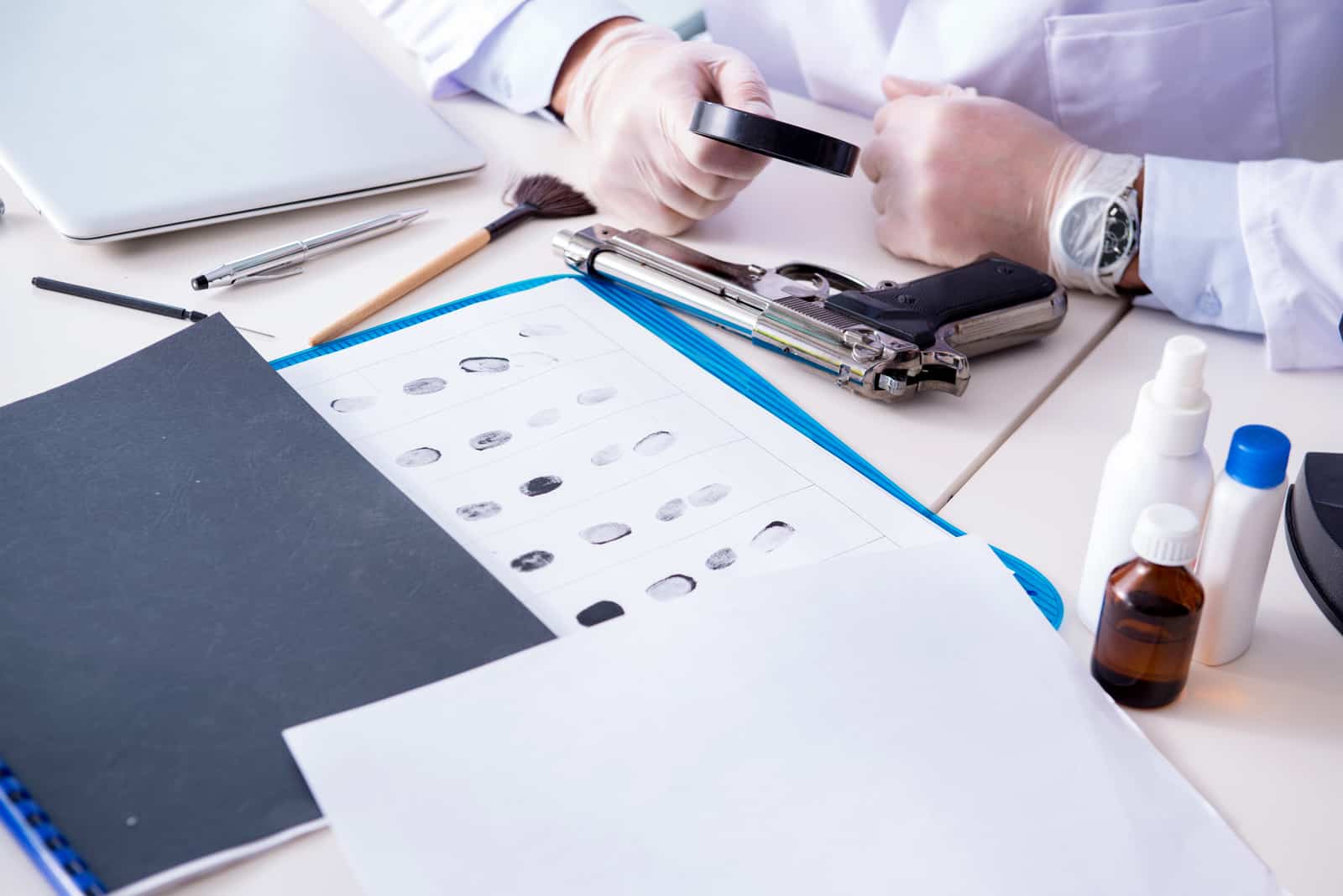
There are numerous jobs in the law enforcement field, apart from a police officer, that allow you to solve crimes using critical thinking and analysis, such as a Criminal Profiler or an Offender Profiler. This line of work demands long years of education, hard work, training and experience because, in many cases, a profiler is the key to solving mysterious cases and catching serial offenders. Law enforcement units have used the services of their profilers for years to link crimes together that were likely committed by the same criminal.
In this article, we bring you what a criminal profiler is, what skills you’ll need, what steps you need to take to enter this line of work, and some of the internet’s frequently asked questions about offender profilers.
What is a Criminal Profiler?
A criminal profiler, as the name suggests, is someone who uses their legal, psychological, criminal and investigative knowledge to put together a potential suspect profile. Armed with this knowledge, you will need to observe and study the emotions, reactions and personalities of criminals to create a criminal profile of the case’s potential suspect. This skill of criminal investigative analysis takes years to develop, and you’ll most likely have worked in law enforcement for years before becoming a criminal profiler.

A criminal profiler works by attempting to reconstruct the crime and how it was committed to understand how the offender was thinking. This helps them to analyse any psychological or behavioural evidence in the crime scene that may help them rewrite the scenario and create a profile of the criminal. We can put it like this; a criminal profiler tries to get inside the head of the criminal to help law enforcement catch them.
How to Become a Criminal Profiler?
This line of career takes a lot of practice, intuition and experience in the legal field. The road to becoming a criminal profiler starts with a college degree, and you’ll need field experience as well. Every step you take from this list adds more knowledge and experience to your repertoire.
1. Graduate from High School
Graduating from high school puts you on the road to becoming a criminal profiler. You’ll need to determine if you want this career early on, so you can volunteer in any available summer courses after high school. A high school diploma is the minimum degree required by law enforcement agencies to work in the police department. Experience with law enforcement is essential since it will aid you in understanding criminal thinking. The GED or General Education Development Certificate is equivalent to a high school diploma.
2. Obtain a Bachelor’s Degree
You may want to continue further studies in the legal field before joining the police force and acquiring a Bachelor’s Degree in Forensic Science, Criminal Justice, Sociology and any related field. This additional degree is also a requirement for many police agencies around the world, such as the FBI Academy. Some police academies offer extensive courses in Criminal Analysis, Law, Psychology and Forensics, and many of these courses require prior knowledge of the laws, precedents and old cases before enrolling.
3. Obtain a Higher Educational Degree
According to the FBI, more than 87% of skilled criminal profilers have an extensive educational degree, which explains the importance of a Master’s or PhD degree in a field related to criminal analysis. This additional degree focuses on a specific field of criminal investigation and might make you eligible for more job openings.
4. Law Enforcement Academy Training
Law enforcement training provides you with the practical experience you’ll need in this field of work. Each police agency determines the length of each training course they offer; hence your training period will differ depending on the department you choose to train in. There are minimum requirements for you to become eligible to join a law enforcement training program, such as owning citizenship, being at least 21 years old, having no criminal record and having a driver’s license.
Try to diversify the training courses you apply for to accumulate the most significant amount of experience. There are Forensics, Psychology, Risk Assessment, Crime Scene Analysis, Crime Typologies and Human Behaviour courses. Remember that training will enhance your job potential, the FBI’s BAU, or Behavioral Analysis Unit, prides itself on having criminal profilers who have 7 to 15 years of training and experience.
5. Find a Job in the Investigative Field
Criminal profiling requires more than a college degree and academy training courses; many agencies need their profilers to have extensive field experience in criminal profiling. You can begin by working as a police officer, which will give you immense field experience with crime scenes and criminals. Even if the academy you applied to doesn’t have a criminal behaviour unit, working as a police officer puts you on the right path until you can find another one with such a unit.
6. Work with Professionals
When you’ve had several years of investigative experience, you can apply to work for professional organisations. Working at these organisations will widen your scope of thinking and keep you updated on the latest changes in the technological field, one that’s extensively used in modern-day crimes. This work will deepen your knowledge and add to your experience.
What Skills Do You Need to Succeed as a Criminal Profiler?
There’s a set of skills that will help you enter and succeed in this line of work. However, even if some individuals are gifted with these skills, they must hone them further. We believe you can learn these skills because practice makes perfect.
1. Critical Thinking and Analysis
Even though you can solve some crimes right away, where the motive and the method are clear, and you can easily link them together to the offender, a large number of crimes are more complex. This complexity demands you, as a criminal profiler; this complexity demands you analyse the available data and link the clues together, allowing you to create a more accurate criminal profile.
2. Impeccable Listening Skills
As a criminal profiler, you will listen to all sides of the crime; the criminals, witnesses and, painfully, the victims as well. If you listen well enough, you might not just create a profile of the possible offender; you might spot a piece of information that could solve the case entirely. Any information during interviews is never wasted when attempting to solve a crime.
3. Objectivity and Emotional Detachment
As a criminal profiler, you will need to put your feelings and emotions aside. This line of work deal with many disturbing cases, from murder to assault and even sexual assault. You must be able to look at the crime and data available objectively without feeling affected by them.
4. Communication Skills
As a criminal profiler, you will generally work as part of a law enforcement team, and you will need to be able to communicate your thoughts and ideas well to your colleagues. It’s essential to cooperate reasonably with your colleagues so you can both reach your goal; catching the criminal.
5. An Eye for Detail
Often, the secrets are in the details. You must practice noticing what others miss and spot the puzzle details hiding in plain sight. You will deal with complex situations a lot, when you’ll need to visit crime scenes, retrace the offender’s possible steps and recreate the crime.
6. Determination
As we mentioned, many crimes can be a whirlwind to solve, and solving a crime depends on finding the offender, which in many cases is not easy or direct. It would help if you were determined to place each puzzle piece in its proper place and might need to go over data several times to find any piece of information you might’ve overlooked.
7. Must be Organised
Being organised will reflect on your work in the criminal field. This skill will allow you to properly manage criminal data from the crime scene, witnesses, and victims to create an accurate criminal profile.
8. Social Awareness
Being socially aware means you are aware of societal trends and how someone’s environment can influence them to commit a crime.
9. Psychological Background
As a criminal profiler, having a background in psychology will allow you to understand criminal behaviour and get inside the criminal’s head to assist in solving the crime.
Criminal Profiler: Frequently Asked Questions
If you’re considering entering this field of work and still have questions about it, we’re bringing you the internet’s frequently asked questions and their answers.
1. Are there similar jobs to a Criminal Profiler?
Yes, there are, and not all of them require you to work at a laboratory or a crime scene. There’s a Forensic Science Technician and a Detective, and if you’d like to steer away from crime scenes, you have a Psychology Professor or a Criminal Justice one.
2. What’s the work environment like?

As a CP, you can work either in a laboratory or in the field alongside the police force. You might need to spend many hours at work and return home late, or if the case is an active one, you might need to work all week, even on weekends or possibly holidays. Additionally, you might need to travel to inspect crime scenes or interview witnesses. A court of law can request your attendance to further explain any findings in the case.
3. Is working as a CP hard?
Every line of work has difficulties, and working as a CP is no exception. If you possess our aforementioned set of skills, then you’re on the right path to becoming a successful profiler. It’s keeping up with the immense workload, pressure, possible long working hours, and hectic schedule; then you’re all good.
4. What’s the difference between a profiler and a detective?
Detectives work on solving the crime, while profilers work on putting together a potential criminal profile, which ultimately helps to solve the crime.
5. How much does a CP make?
A CP earns an average of $2,900 monthly, while top CPs earn an average of $3,800 monthly.
We stress that you can learn many skills a CP needs in their work, so if you’re thinking about becoming one, we highly encourage you.
